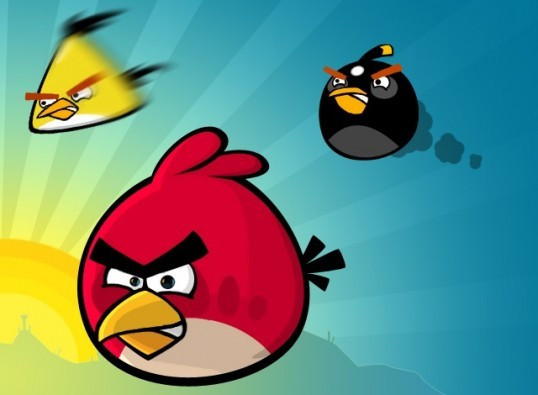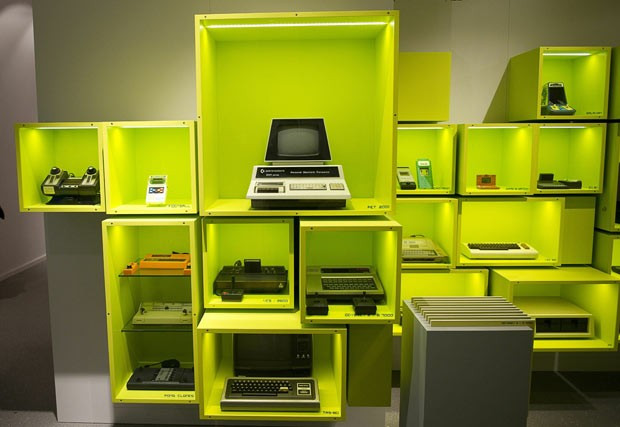Why Games Matter Blog - Mobile Games Will Kill Us All
A blog dedicated to big issues affecting the games industry
Mobile Games Will Kill Us All - Why console games are still the most important

I struggled to come up with a proper headline for this article. Apart from having to change the name of the blog this week, after discovering that The Escapist also runs a column called 'Exploding Barrels', trying to come up with a measured response to this interview is like trying to hold in a swear word after you tread on your kid's Lego.
"What The Bloody Hell Is Going On?" was one working title. "Sod Games" was another. Reading what Trip Hawkins has to say up there would be enough to drive any right-minded game critic to, I don't know, books or some rubbish. As for me, someone who's pretty much had it with computer games anyway, well, this might just be the breaking point.
For those of you who haven't read the interview, and have therefore passed a secret government test to see how many people in Britain are allergic to bullshit, a quick summary: Trip Hawkins, co-founder of EA, thinks that console games are becoming niche. 'Hardcore gamers' (excuse me a minute while I punch myself in both balls for using that expression) he believes, will become like "hobbyists", with Facebook, social and mobile games taking centre stage as the industry's main output. Speaking to IGN, he explained:
"The console market is always going to be with us, because there's always going to be a hardcore segment, a segment that likes innovation. But it's going to become a smaller market, and it's going to be more like a hobby market.
"You look at airplanes. Most of us just want to be a passenger, but there's a hobby market for people who are really into aviation and want to take flying lessons and maybe someday have their own airplane. I think that's what's happening to the console market.
"In the old days I'd go down to the basement to play Grand Theft Auto. But the Facebook gamer is able to play at work, at home, in a hotel on a PC. They can get access to a browser just about anywhere. People are thinking about convenience first."
Gimmick games
On the surface, it seems a reasonable assumption to make: Console sales are down by 34 percent; the App Store and Google Play are seeing more downloads than ever; and casual games continue to make money like a coin operated Ryan Gosling at a hen night. From a statistical perspective, Hawkins is absolutely right - the market share for consoles and console games is rapidly shrinking, and soon, whenever you mention videogames, it'll be Angry Birds and Farmville that pop into people's heads, not Grand Theft Auto and Call of Duty. The assertion here is not the problem; it's Hawkins', and other developers' willingness to just go along with it that I find troubling.

Companies have to adapt to new markets and new technology, otherwise they stop being companies and just become a hundred people standing around without jobs. But are social and mobile games what the culture really needs right now? When I browse the App Store, or skim the Facebook sidebar, all I see are gimmick games, basic, faddy concepts at 69p a throw. There's the occasional diamond in the rough, like Sword and Sworcery, but most of the games that Hawkins thinks are the future are quick, disposable and easy. Thanks to a proliferation of users and a few whirlwind success stories, the App Store and Google Play have become seas of quick-turnaround profit games which anyone can piss into.
Regression
Rather than the future, they seem like a regression: Looking at Angry Birds or Temple Run, it's easy to imagine them housed in 80s style arcade cabinets, asking players to insert their 69 pences. Since when was this what we were working on? With all the leaps forward in graphics and animation technology, and some genuinely impressive voice and writing talent finally bleeding into games, I was under the impression that deeper, meatier and more adult games were the new wave. A few years ago, when you couldn't even open a magazine without finding an editorial on 'games as art', it seemed like games were finally growing up. Now, save for a few bespoke publications, that art crusade has petered out: Games are going backwards.
Instead of growing in sophistication, in the way that films did as they got older, mainstream games are quickly getting cheaper and more basic. The console, that stuffy machine sitting in your living room that demands you make time for games, that you pay good money for them and play them in full, will soon be dead: Big game worlds like Fallout and GTA will be the reserve of hobbyists, fanatical weirdos who for some reason, think computer games mean more than just throwing birds at pigs while you're on the tube.

I like the hierarchy of console games; I like that not everyone can make them and that if you want to play one you need to dedicate the money and dedicate the time. It shows a respect for computer games that the App Store, Facebook and Google Play can't demand. As far as the games as art debate goes, consoles represent a clear divide between the audience and the creator, the closest thing that industry has towards artistic license.
If the future is not the place for console games - and according to this, this and this (thanks Gamasutra) it isn't - then the blessed things will never be artworks. The more time we spend on mobiles, the more games become about fitting around our lives rather than vice-versa, the less credence we'll give to them. Pick them up, put them down; play for 69p, or just play for nothing. What does it matter? After all, they're only games.
© Copyright IBTimes 2025. All rights reserved.




















